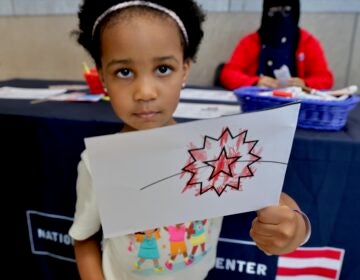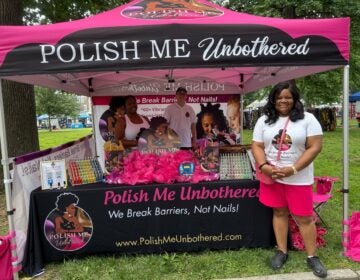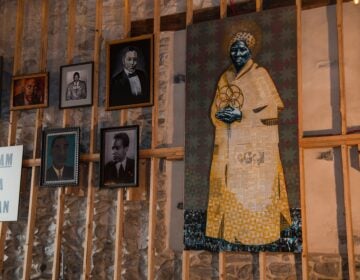African American Museum in Philadelphia celebrates Juneteenth with block party
The Museum brought Philadelphians together in celebration of the holiday’s 160th anniversary.
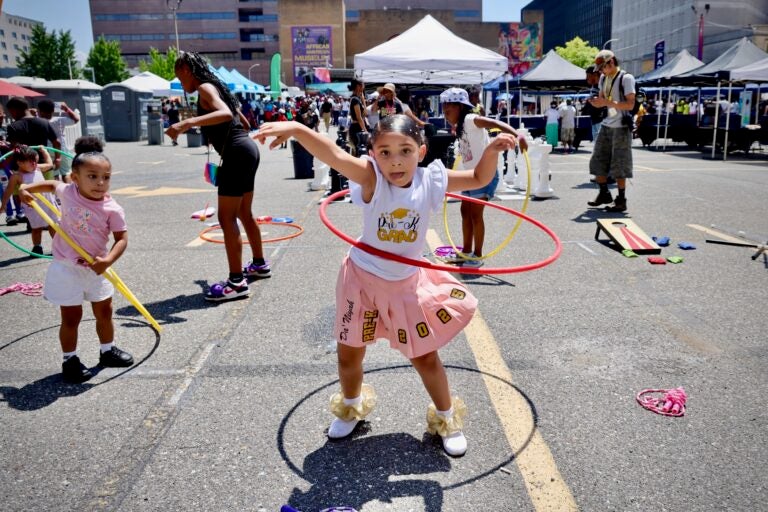
Nini Garrett, 5, of Philadelphia, hula hoops at the Juneteenth Block Party put on by the African American Museum in Philadelphia. (Emma Lee/WHYY)
Hundreds gathered to kick off the Juneteenth block party and celebrations at the African American Museum in Philadelphia Thursday afternoon.
Food trucks and booths lined the street with various activities, and performers entertained guests on the live music stage erected in the museum’s parking lot.
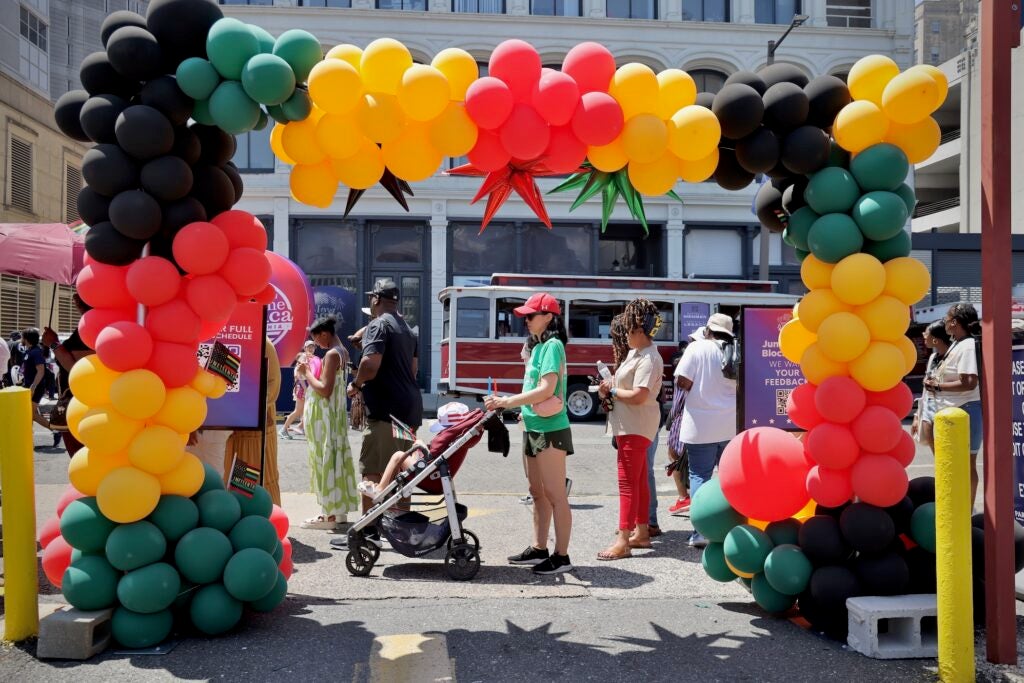
Dr. Michael Wilson, assistant curator, said that the museum’s message with their celebration is that the progression of African American emancipation is one of “delayed but never denied.”
“Being able to use the museum as a vehicle to guard the community … honor, legacy, and ancestors in history, and then also kind of celebrate the present, I think is a really nice thing to use the museum as a hub to do that,” Wilson said.
He said that despite changing political climates, “people always find the urgency to commune together.”
“People talk about what it means to preserve history or tell your story. I think that, you know, as a museum, every year it’s urgent to do that, right?” Wilson said.

Philadelphia resident Tammy Pierce said she came to the museum Thursday to learn about the history of Juneteenth. She said events like this one bring people together. “It’s a celebration.”
Pierce, who has been attending multiple Juneteenth events every year, said she hopes people acknowledge the history of the holiday, while enjoying it through community celebrations.
Marvin Toliver, founder of Dear Black Men, an organization that advocates for Black men’s health, was there to spread information about his organization.
“We’re a really new nonprofit, not even a year old yet, but a lot of our programming is really powerful,” Toliver said. “We’re really just trying to spread the word around the nonprofit just because Black men’s healing is so important.”
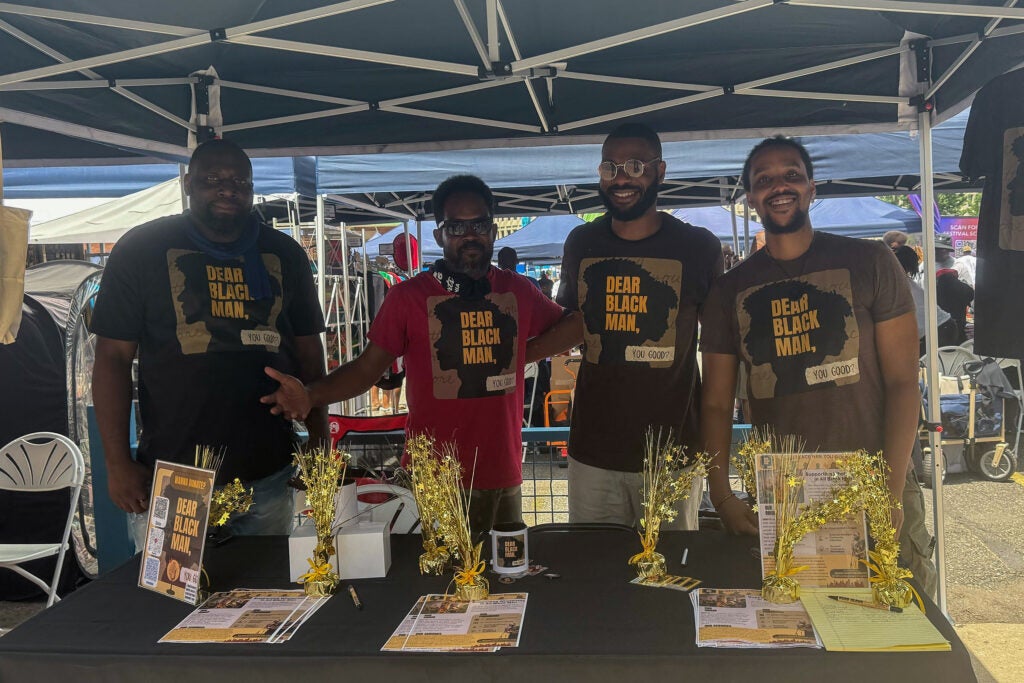
He strives to be a “role model” and provide a space for young Black men.
Toliver said that his father was part of the Black Panthers movement and grew up learning that “Black people will still show up, show out, we’ll overcome a lot.”
Juneteenth is significant to him because of “how hard his ancestors fought.”
“To be able to honor them, to be able to support something and build something like this for the community, it’s really powerful,” Toliver said.
Telandria Boyd-Johnson, a South Jersey resident and member of GirlTrek, which promotes “mass movement for health justice” for Black women, reflected on the moment when enslaved African Americans were legally considered free in the US.
“Just the amount of joy they must have had, to find out that they were free, at least on paper,” Boyd-Johnson said.” They’d been working towards freedom for a long time– that really expresses the fullness of the American experience.”
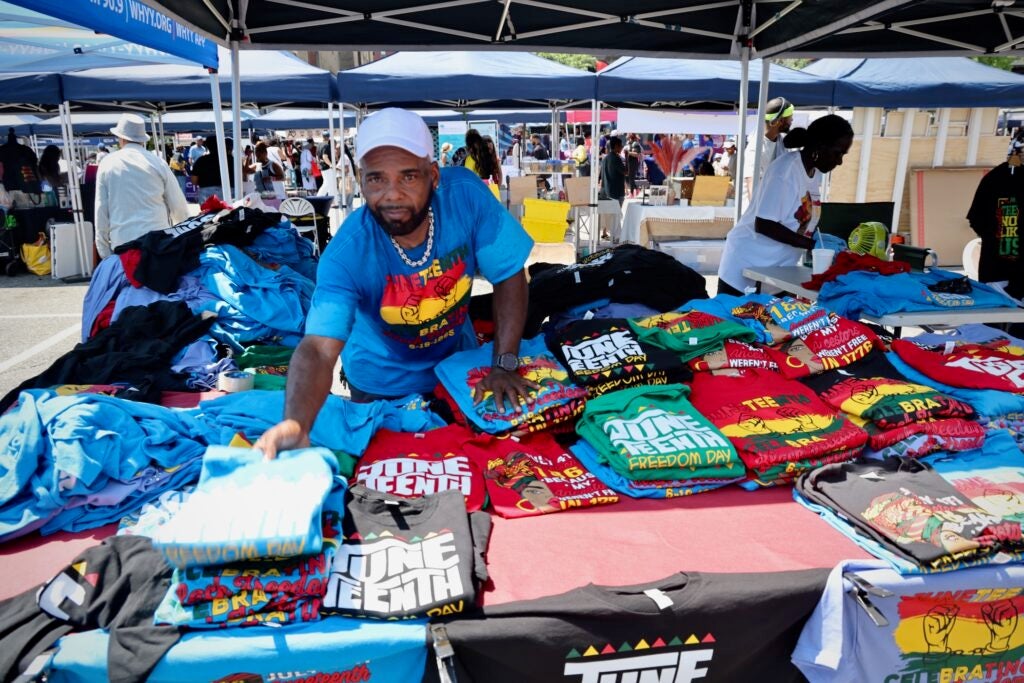
New Jersey resident and another GirlTrek member Laurinda Harper said she came to enjoy the festivities and visit the museum. She feels that Juneteenth serves as an expression of love for her African American culture.
Masterjay Purno, a Philadelphia resident and plumber, brought his granddaughter to the block party in hopes of teaching her about Juneteenth.
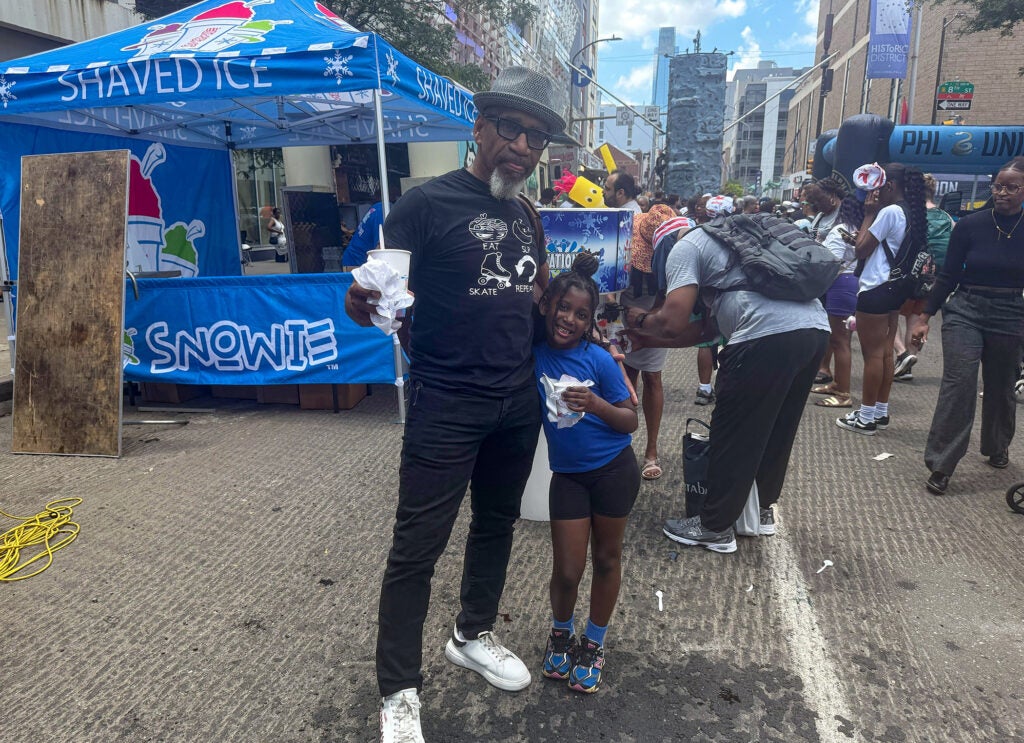
He said Juneteenth means a variation of things to many people, and he sees the holiday as a way to connect to his culture.
“I can come and see other African Americans, other colored people just coming out and celebrating something because we all have different agendas,” Purno said. “We’re the most collective group of people that I know.”

Get daily updates from WHYY News!
WHYY is your source for fact-based, in-depth journalism and information. As a nonprofit organization, we rely on financial support from readers like you. Please give today.


